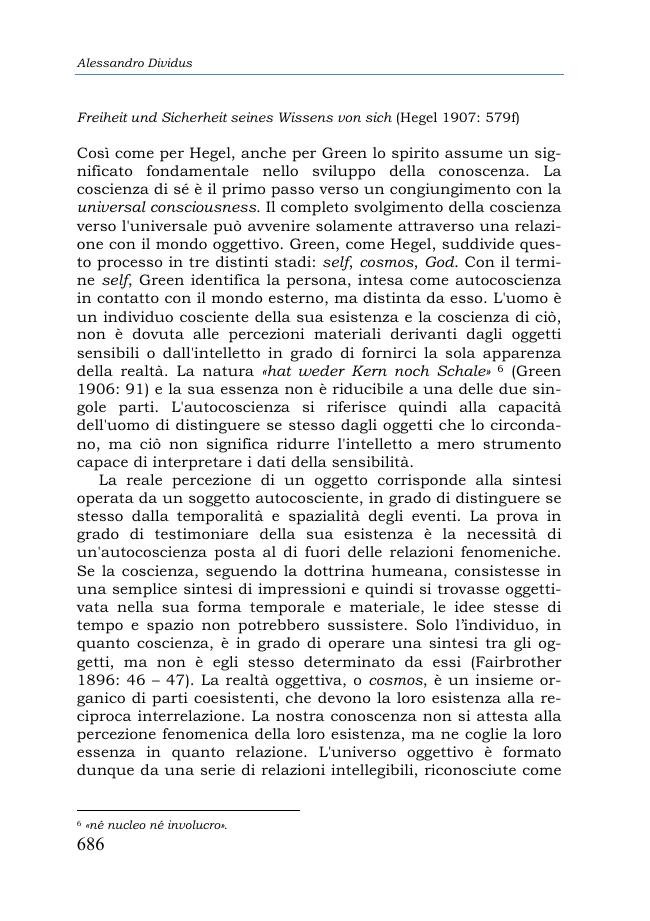Il valore dell'autocoscienza nella filosofia politica di Thomas Hill Green
679-693 p.
The focus of this article is the eclectic character of T.H. Green's position. Starting from a critical analysis of empiricism, Green high-lighted its relations with the Kantian epistemology. The philosophy of Green is based on two principles: the notion of the self, seen as capable of bettering itself, and the existence of a universal consciousness. The moral character of human actions stems from the principle of self-realization, which aims to reduce the impact of egoism on morality. As a consequence, the Kantian vision of the moral good seems to affirm itself at the cost of the hedonistic explanation of it. Notwithstanding, at the same time, Green rejected what he regarded as the too abstract aspects of the Hegelian view. [Publisher's text].
-
Articles from the same issue (available individually)
-
Information
ISSN: 2037-0520
KEYWORDS
- Nature, self-consciousness, morality, politics, common good



